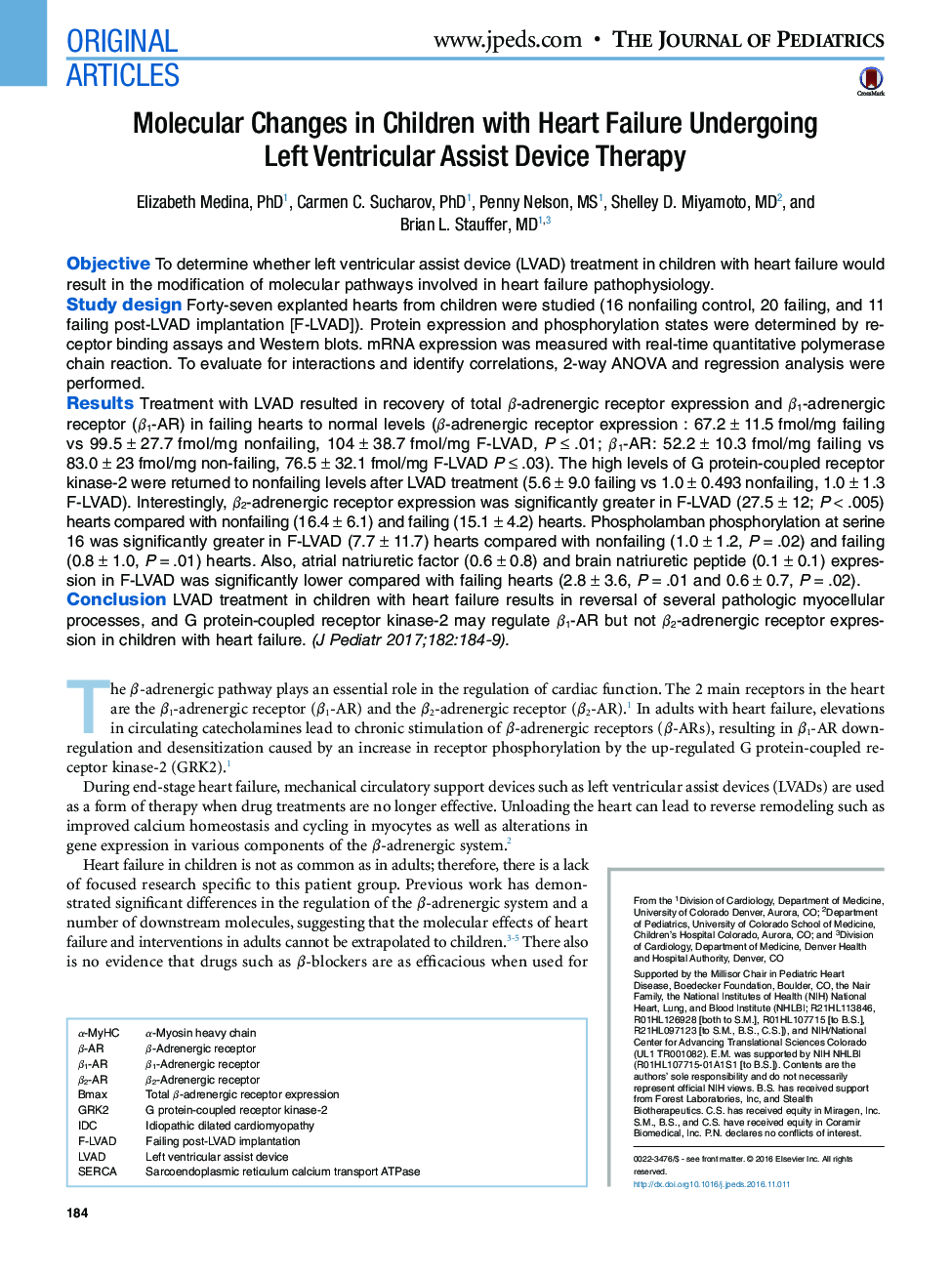| Article ID | Journal | Published Year | Pages | File Type |
|---|---|---|---|---|
| 5719673 | The Journal of Pediatrics | 2017 | 7 Pages |
ObjectiveTo determine whether left ventricular assist device (LVAD) treatment in children with heart failure would result in the modification of molecular pathways involved in heart failure pathophysiology.Study designForty-seven explanted hearts from children were studied (16 nonfailing control, 20 failing, and 11 failing post-LVAD implantation [F-LVAD]). Protein expression and phosphorylation states were determined by receptor binding assays and Western blots. mRNA expression was measured with real-time quantitative polymerase chain reaction. To evaluate for interactions and identify correlations, 2-way ANOVA and regression analysis were performed.ResultsTreatment with LVAD resulted in recovery of total β-adrenergic receptor expression and β1-adrenergic receptor (β1-AR) in failing hearts to normal levels (β-adrenergic receptor expression : 67.2â±â11.5âfmol/mg failing vs 99.5â±â27.7âfmol/mg nonfailing, 104â±â38.7âfmol/mg F-LVAD, Pââ¤â.01; β1-AR: 52.2â±â10.3âfmol/mg failing vs 83.0â±â23âfmol/mg non-failing, 76.5â±â32.1âfmol/mg F-LVAD Pââ¤â.03). The high levels of G protein-coupled receptor kinase-2 were returned to nonfailing levels after LVAD treatment (5.6â±â9.0 failing vs 1.0â±â0.493 nonfailing, 1.0â±â1.3 F-LVAD). Interestingly, β2-adrenergic receptor expression was significantly greater in F-LVAD (27.5â±â12; Pâ<â.005) hearts compared with nonfailing (16.4â±â6.1) and failing (15.1â±â4.2) hearts. Phospholamban phosphorylation at serine 16 was significantly greater in F-LVAD (7.7â±â11.7) hearts compared with nonfailing (1.0â±â1.2, Pâ=â.02) and failing (0.8â±â1.0, Pâ=â.01) hearts. Also, atrial natriuretic factor (0.6â±â0.8) and brain natriuretic peptide (0.1â±â0.1) expression in F-LVAD was significantly lower compared with failing hearts (2.8â±â3.6, Pâ=â.01 and 0.6â±â0.7, Pâ=â.02).ConclusionLVAD treatment in children with heart failure results in reversal of several pathologic myocellular processes, and G protein-coupled receptor kinase-2 may regulate β1-AR but not β2-adrenergic receptor expression in children with heart failure.
